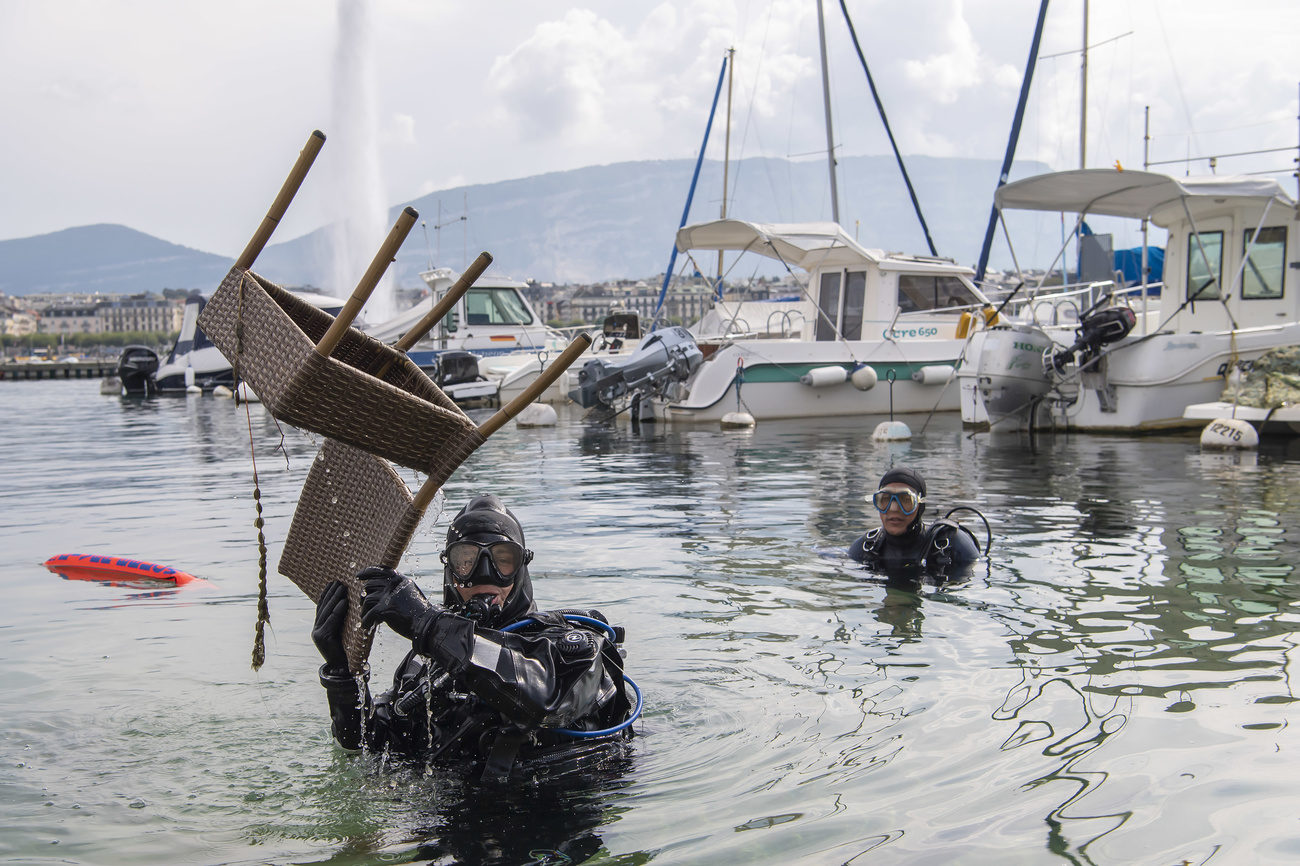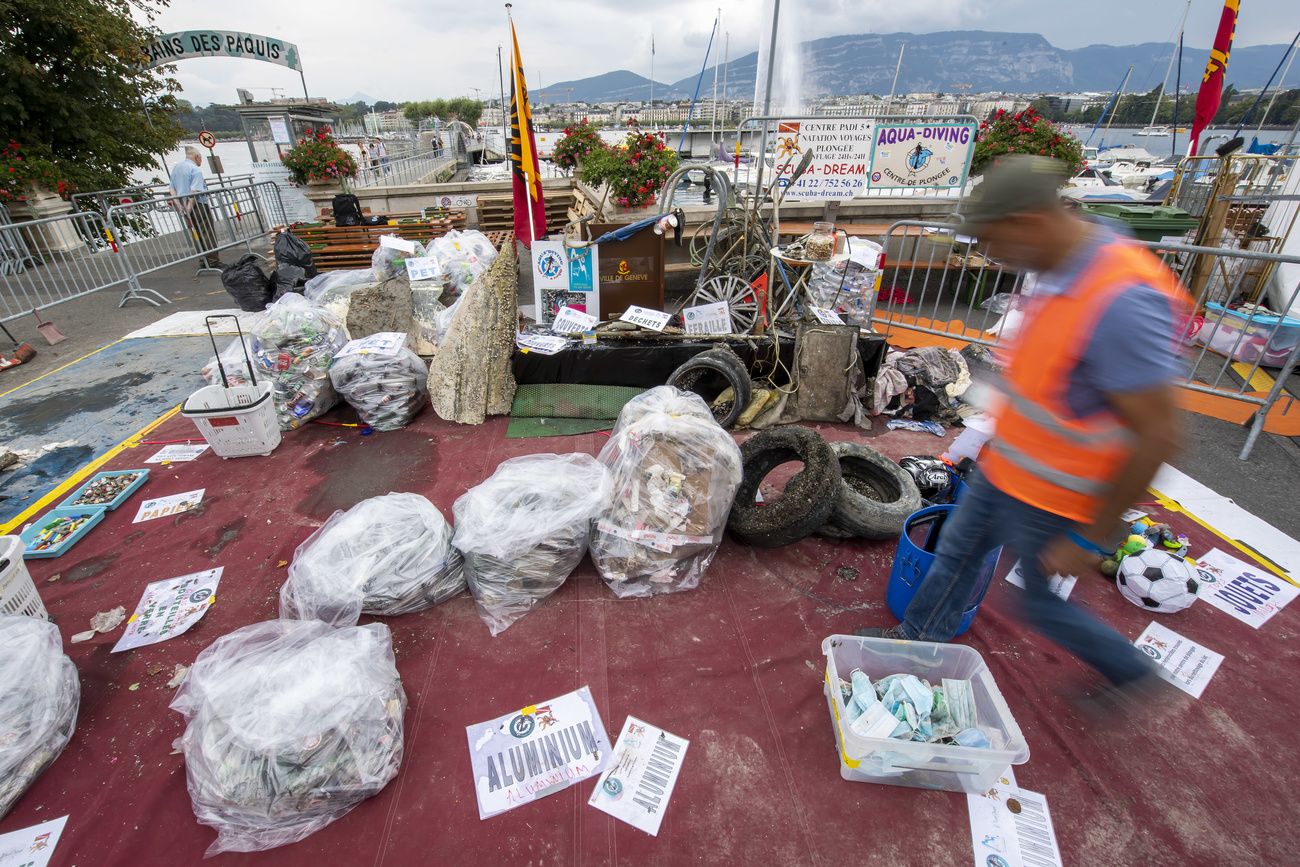
Hundreds of face masks fished out of Lake Geneva

More than 1,000 volunteers have picked up five tonnes of rubbish across Switzerland as part of the annual World Cleanup Day. This included some 500 Covid-19 face masks.
Internationally, Switzerland has the image of being a clean country – but appearances are deceptive, according to NGO Let’s Do It. It says littering costs Swiss taxpayers around CHF200 million ($220 million) a year, and at 716 kilograms per person per year, Switzerland is near the top globally for producing waste.
On Saturday Let’s Do It Switzerland joined the annual World Cleanup Day event. People collected 5,262 kg of rubbish in 41 clean-up operations in lakes, shores, villages, forests, mountains and cities. This was documented, sorted and disposed of correctly, it said. Across Switzerland 1,114 kg of rubbish were recycled.

Let’s Do It spokesman Fabio Gieriet said the amount of hazardous waste collected was particularly large: 194,063 cigarette butts alone were picked up, he said, pointing out that the toxic components of a single cigarette filter could contaminate up to 1,000 litres of water. In addition, 515 protective masks had been collected.
Pandemic rubbish
One consequence of the Covid-19 pandemic has been the closure of restaurants and bars, which has led to gatherings near lakes, including Lake Geneva.
“We could tell there was a lot of rubbish because of Covid,” said Patty Moll, president of the annual Aqua Diving Clean-up event on Lake Geneva. They found a total of 112 face masks and much more cutlery than usual.
World Cleanup Day began in 2008 in Estonia and has developed into a worldwide movement. This year clean-up events took place in 180 countries. In Switzerland 1,347 volunteers took part in 17 of 26 cantons.

More
Plastic: How can the Swiss use so much and recycle so little?

In compliance with the JTI standards
More: SWI swissinfo.ch certified by the Journalism Trust Initiative


























You can find an overview of ongoing debates with our journalists here . Please join us!
If you want to start a conversation about a topic raised in this article or want to report factual errors, email us at english@swissinfo.ch.